Old Pictures from Celestia (locked)
-
PlutonianEmpire

- Posts: 1374
- Joined: 09.09.2004
- Age: 40
- With us: 20 years 2 months
- Location: MinneSNOWta
- Contact:
Re: Post your Celestia pictures!
I messed around with the atmosphere values for Titan's Mie atmosphere. The deep blue seemed ridiculous.
Terraformed Pluto: Now with New Horizons maps! :D
- t00fri
- Developer
- Posts: 8772
- Joined: 29.03.2002
- Age: 22
- With us: 22 years 7 months
- Location: Hamburg, Germany
Re: Post your Celestia pictures!
PlutonianEmpire wrote:I messed around with the atmosphere values for Titan's Mie atmosphere. The deep blue seemed ridiculous.
The deep blue haze extending above the orange smog is of course not ridiculous. I had several instructive mail exchanges about its existence and its visual appearance with the Cassini lead scientist before implementing it into Celestia.
Here is a (true/natural) color photo by NASA
http://www.space.com/14053-titans-orang ... close.html
Credit: NASA/JPL-Caltech/Space Science Institute
and this is the comparison with Celestia.1.6.x
++++++++++++++++++
Note: Removing the orange smog by hitting the 'I' key shortcut makes little sense without also switching off Titan's atmosphere (via CTRL+A) at the same time. Without removing the latter, you indeed perceive an unnatural display of the remaining deep blue haze around Titan that is too intensive visually! Such (partial) displays have no relation to reality anyway. Their only purpose is to enable a glimpse on Titan's surface morphology without actually using 'infrared filters' to penetrate the orange smog.
++++++++++++++++++
But nevertheless, look at this close-up (UV enhanced) photo of the layers of Titan's atmosphere by the Cassini spacecraft
http://en.wikipedia.org/wiki/File:Titan ... Layers.jpg
Imagine to remove just the orange smog in the lower part of this close-up and you will retain an image not too dissimilar to what Celestia gives after just removing the orange cloud layer (i.e. by hitting the 'I' key)
I think you also worsened the backscattering appearance of Titan in comparison with
what I implemented into Celestia. Its close resemblance with real Cassini photos
has been amply discussed in previous shatters.net threads:
Fridger
-
PlutonianEmpire

- Posts: 1374
- Joined: 09.09.2004
- Age: 40
- With us: 20 years 2 months
- Location: MinneSNOWta
- Contact:
Re: Post your Celestia pictures!
Which is why I used the word "seemed".t00fri wrote:PlutonianEmpire wrote:I messed around with the atmosphere values for Titan's Mie atmosphere. The deep blue seemed ridiculous.
The deep blue haze extending above the orange smog is of course not ridiculous.
I think I faintly recall from past discussions that Celestia is intended to give the user a "naked eye" experience, meaning space is shown as it would appear to the naked eye. I also faintly recall a statement saying the blue haze in Titan's upper atmosphere is probably not visible to the naked eye. I took both these into account when modifying Titan's atmosphere.I had several instructive mail exchanges about its existence and its visual appearance with the Cassini lead scientist before implementing it into Celestia.
Here is a (true/natural) color photo by NASA
http://www.space.com/14053-titans-orang ... close.html
Credit: NASA/JPL-Caltech/Space Science Institute
and this is the comparison with Celestia.1.6.x
++++++++++++++++++
Note: Removing the orange smog by hitting the 'I' key shortcut makes little sense without also switching off Titan's atmosphere (via CTRL+A) at the same time. Without removing the latter, you indeed perceive an unnatural display of the remaining deep blue haze around Titan that is too intensive visually! Such (partial) displays have no relation to reality anyway. Their only purpose is to enable a glimpse on Titan's surface morphology without actually using 'infrared filters' to penetrate the orange smog.
++++++++++++++++++
But nevertheless, look at this close-up (UV enhanced) photo of the layers of Titan's atmosphere by the Cassini spacecraft
http://en.wikipedia.org/wiki/File:Titan ... Layers.jpg
Imagine to remove just the orange smog in the lower part of this close-up and you will retain an image not too dissimilar to what Celestia gives after just removing the orange cloud layer (i.e. by hitting the 'I' key)
I think you also worsened the backscattering appearance of Titan in comparison with
what I implemented into Celestia. Its close resemblance with real Cassini photos
has been amply discussed in previous shatters.net threads:
Fridger
I could be wrong though.
Terraformed Pluto: Now with New Horizons maps! :D
- t00fri
- Developer
- Posts: 8772
- Joined: 29.03.2002
- Age: 22
- With us: 22 years 7 months
- Location: Hamburg, Germany
Re: Post your Celestia pictures!
PlutonianEmpire wrote:...
I think I faintly recall from past discussions that Celestia is intended to give the user a "naked eye" experience, meaning space is shown as it would appear to the naked eye. I also faintly recall a statement saying the blue haze in Titan's upper atmosphere is probably not visible to the naked eye. I took both these into account when modifying Titan's atmosphere.
I could be wrong though.
To clear these matters up in an "authoritative" manner, I had contacted the leading scientist of the Cassini mission (as I wrote above). While you may do whatever you like with your Titan images, in Celestia Development we try to stick to facts rather than to unreferenced "faint remembrances". I would not have implemented a weak trace of the deep blue haze beyond the orange smog boundary ( see above) without a direct confirmation by Cassini mission scientists of its faint naked eye visibility. I suggest you consult this official page about the Blue Haze and its appearance in Natural Colors <=> naked eye visibility:
http://saturn.jpl.nasa.gov/photos/image ... ageId=4445
The annotations comply with the informations I received directly by Cassini scientists.
Of course, the actual visibility of the Blue Haze is weaker than displayed on some NASA images, like e.g. here on the introductory page of the Cassini Solstice Mission site:
http://saturn.jpl.nasa.gov/science/inde ... ePageID=73

Finally, as concerns your desire
this image you displayed in your post above then is a manifest contradiction thereofPlutonianEmpire wrote:...to give the user a "naked eye" experience,
You sure know that it is impossible to see details of Titan's surface with the naked eye!
And besides, in Celestia we had to break this qualitative rule of "naked eye visibility" in many places in favor of an astrophysically more complete and thus more sensible visualization. It is a fact that these days only a small fraction of astronomical imaging takes place in the tiny wavelength window of strict "naked eye visibility".
Fridger
Re: Post your Celestia pictures!
Dry dock with spotlights is getting a little better. Still have a lot to do.
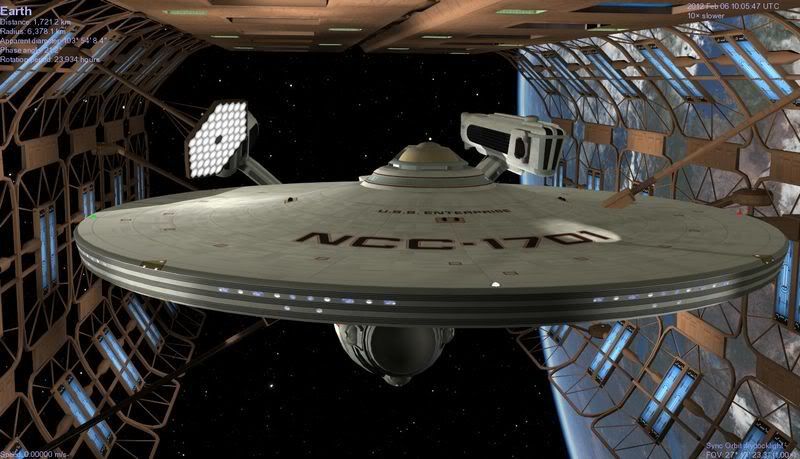
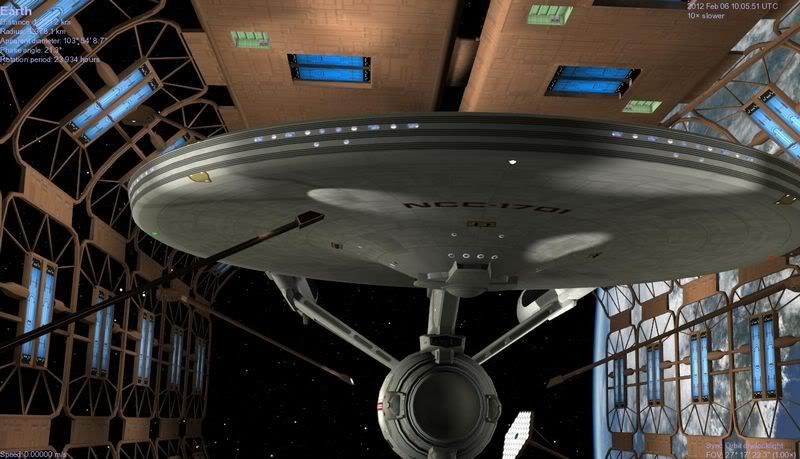
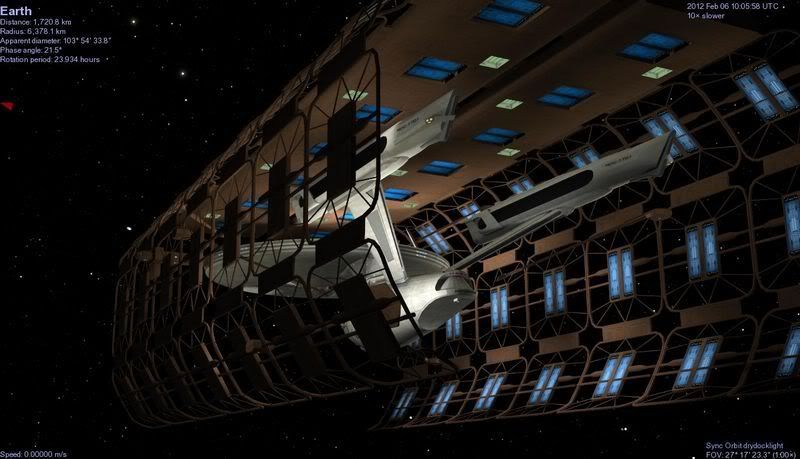
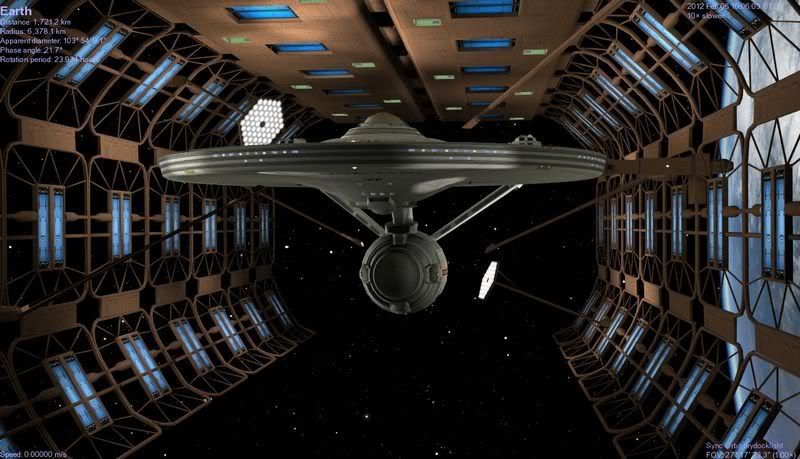
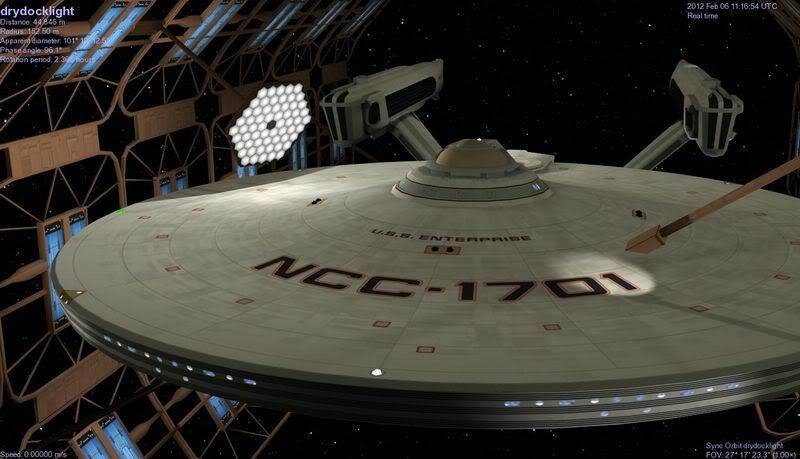






Re: Post your Celestia pictures!
Gasp!Reiko wrote:Dry dock with spotlights is getting a little better. Still have a lot to do.
Well done, Reiko, it looks like a real thing.
Cannot wait to test it.
Bye
Goofy
"Something is always better than nothing!"
HP Omen 15-DC1040nl- Intel® Core i7 9750H, 2.6/4.5 GHz- 1TB PCIe NVMe M.2 SSD+ 1TB SATA 6 SSD- 32GB SDRAM DDR4 2666 MHz- Nvidia GeForce GTX 1660 Ti 6 GB-WIN 11 PRO
HP Omen 15-DC1040nl- Intel® Core i7 9750H, 2.6/4.5 GHz- 1TB PCIe NVMe M.2 SSD+ 1TB SATA 6 SSD- 32GB SDRAM DDR4 2666 MHz- Nvidia GeForce GTX 1660 Ti 6 GB-WIN 11 PRO
Re: Post your Celestia pictures!
Really beautiful, Reiko ! It doesn't look like in Celestia, it's looking like real ! 
"Well! I've often seen a cat without a grin", thought Alice; "but a grin without a cat! It's the most curious thing I ever saw in all my life!"
-
PlutonianEmpire

- Posts: 1374
- Joined: 09.09.2004
- Age: 40
- With us: 20 years 2 months
- Location: MinneSNOWta
- Contact:
Re: Post your Celestia pictures!
Ah. In any case, I do apologize.t00fri wrote:PlutonianEmpire wrote:...
I think I faintly recall from past discussions that Celestia is intended to give the user a "naked eye" experience, meaning space is shown as it would appear to the naked eye. I also faintly recall a statement saying the blue haze in Titan's upper atmosphere is probably not visible to the naked eye. I took both these into account when modifying Titan's atmosphere.
I could be wrong though.
To clear these matters up in an "authoritative" manner, I had contacted the leading scientist of the Cassini mission (as I wrote above). While you may do whatever you like with your Titan images, in Celestia Development we try to stick to facts rather than to unreferenced "faint remembrances". I would not have implemented a weak trace of the deep blue haze beyond the orange smog boundary ( see above) without a direct confirmation by Cassini mission scientists of its faint naked eye visibility. I suggest you consult this official page about the Blue Haze and its appearance in Natural Colors <=> naked eye visibility:
http://saturn.jpl.nasa.gov/photos/image ... ageId=4445
The annotations comply with the informations I received directly by Cassini scientists.
Of course, the actual visibility of the Blue Haze is weaker than displayed on some NASA images, like e.g. here on the introductory page of the Cassini Solstice Mission site:
http://saturn.jpl.nasa.gov/science/inde ... ePageID=73
Finally, as concerns your desirethis image you displayed in your post above then is a manifest contradiction thereofPlutonianEmpire wrote:...to give the user a "naked eye" experience,
You sure know that it is impossible to see details of Titan's surface with the naked eye!
And besides, in Celestia we had to break this qualitative rule of "naked eye visibility" in many places in favor of an astrophysically more complete and thus more sensible visualization. It is a fact that these days only a small fraction of astronomical imaging takes place in the tiny wavelength window of strict "naked eye visibility".
Fridger
Terraformed Pluto: Now with New Horizons maps! :D
Re: Post your Celestia pictures!
Goofy wrote:Gasp!Reiko wrote:Dry dock with spotlights is getting a little better. Still have a lot to do.
Well done, Reiko, it looks like a real thing.
Cannot wait to test it.
Bye
Goofy
Cham wrote:Really beautiful, Reiko ! It doesn't look like in Celestia, it's looking like real !
J.T.K. wrote:
Cool !
You can work for ILM or Pixar.
Can you tell us the weight of your files ?
Drydock=
Enterprise=
Thank you guys.
J.T.K. wrote:Can you tell us the weight of your files ?
Drydock=
Enterprise=
So far the whole thing is around 27MB but most of that is a result of the textures. Once I optimize them that number should come way down. The models themselves come out to 6.7MB all together.
All I did was take an Enterprise and dock model from Bridge Commander then unwrap and re-render the textures with the lighting effects baked in.
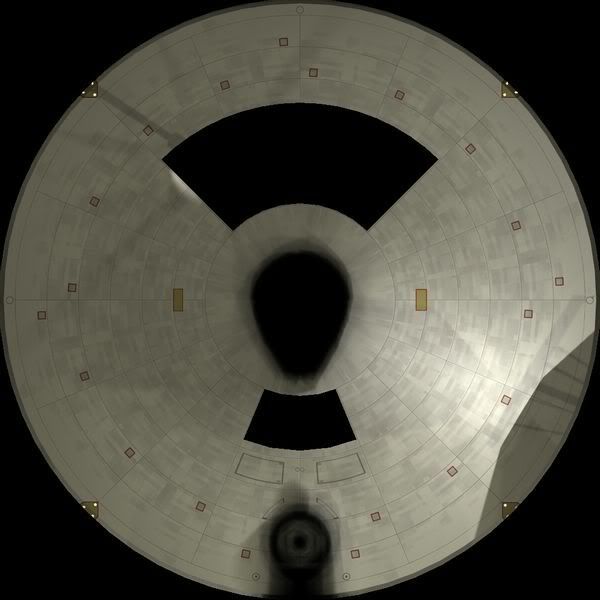
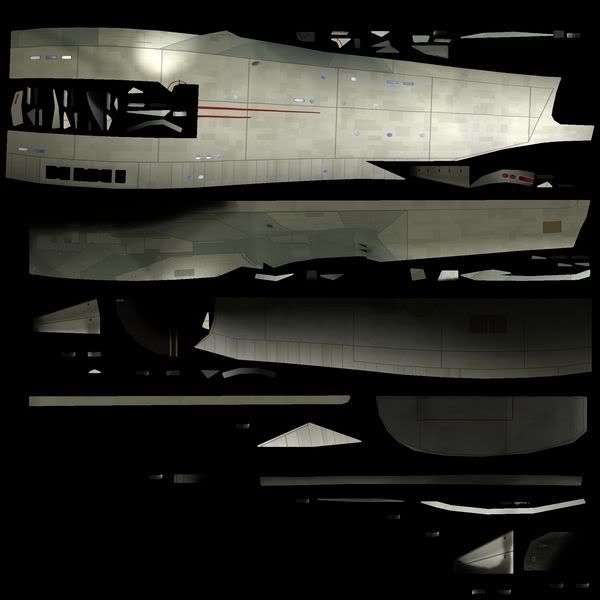
-
PlutonianEmpire

- Posts: 1374
- Joined: 09.09.2004
- Age: 40
- With us: 20 years 2 months
- Location: MinneSNOWta
- Contact:
Re: Post your Celestia pictures!
I took over an existing star, manipulated it to fit my needs, and egomaniacally named the system after myself. 
The original star is still itself; I simply bumped it up to trinary status. The star on the left is itself a fictional close binary, with the original star on the right. It is the same system in which both the Nueve Pluton moon and lavender gas giant I introduced on page 59 are located. The fictional binary was added later.
The original star is still itself; I simply bumped it up to trinary status. The star on the left is itself a fictional close binary, with the original star on the right. It is the same system in which both the Nueve Pluton moon and lavender gas giant I introduced on page 59 are located. The fictional binary was added later.
Terraformed Pluto: Now with New Horizons maps! :D
-
PlutonianEmpire

- Posts: 1374
- Joined: 09.09.2004
- Age: 40
- With us: 20 years 2 months
- Location: MinneSNOWta
- Contact:
Re: Post your Celestia pictures!
Ah, I see.J.T.K. wrote:Hi,
I think that the system is not stable.
More the orbit of the farest planet is disrupted by second star,
but we didn't see the charateristics of the stc file...
here's a zip containing the system (SSC and STC only, no textures), so you can see for yourself.
Anyways, I got tired of Earth orbiting Saturn, so I put Saturn back in its rightful orbit, and came up with a completely fictional gas giant in Earth's original orbit.
Introducing, Earth and Gaea.
Terraformed Pluto: Now with New Horizons maps! :D
- John Van Vliet
- Posts: 2944
- Joined: 28.08.2002
- With us: 22 years 2 months
Re: Post your Celestia pictures!
some fun with cassini rev 161
https://picasaweb.google.com/1026959012 ... siniRev161
example
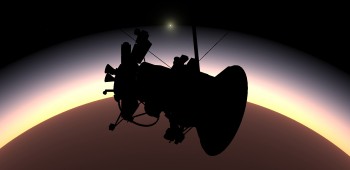
Titan & Enceladus mutual event
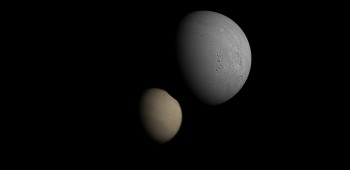
https://picasaweb.google.com/1026959012 ... siniRev161
example

Titan & Enceladus mutual event

-
PlutonianEmpire

- Posts: 1374
- Joined: 09.09.2004
- Age: 40
- With us: 20 years 2 months
- Location: MinneSNOWta
- Contact:
Re: Post your Celestia pictures!
I think it's safe to say the habitable worlds in this system are terraformed.J.T.K. wrote:PlutonianEmpire wrote:Ah, I see.J.T.K. wrote:Hi,
I think that the system is not stable.
More the orbit of the farest planet is disrupted by second star,
but we didn't see the charateristics of the stc file...
here's a zip containing the system (SSC and STC only, no textures), so you can see for yourself.
Fine, I took the file and here are the result :
1° After downloading, the simulation up to 240 000 years after J.C. and the stars are always each side of barycenter.
2° The inclination of the farest planet is good and considers the presence of the first star.
There is no physically problem for this stars system.
But...
You take an 'A star', I think that it is too big, too bright, to hot, too short life...life (which we know it) doesn't support this star type, why not a F, G or K ?
For the another binary (G7 and G9) no problem.
Go on !
Terraformed Pluto: Now with New Horizons maps! :D
Re: Post your Celestia pictures!
Added space suited people standing on the hull. 
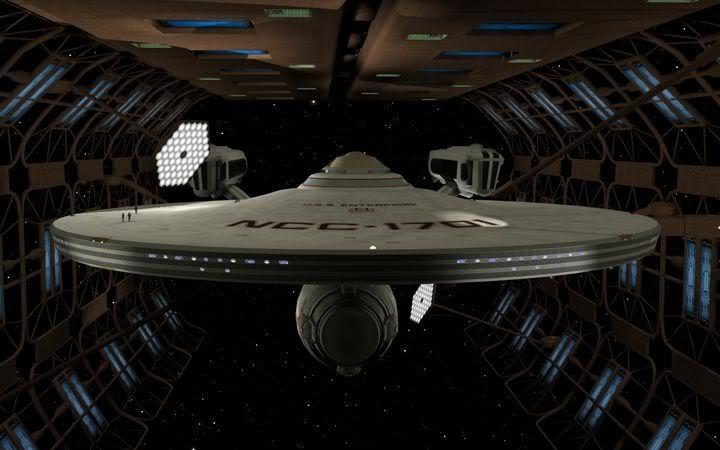
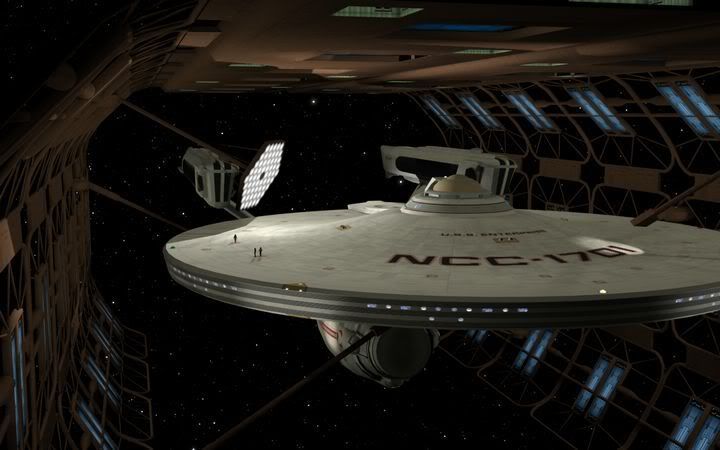
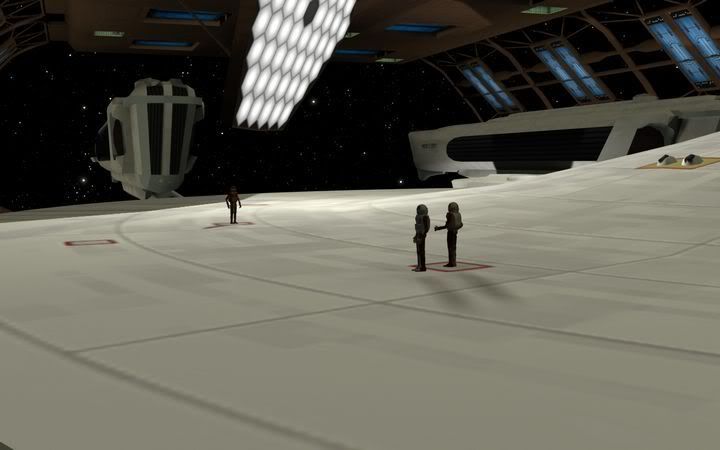
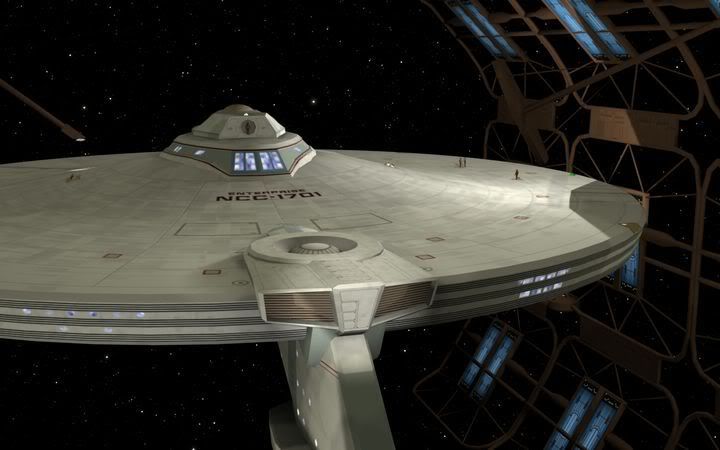
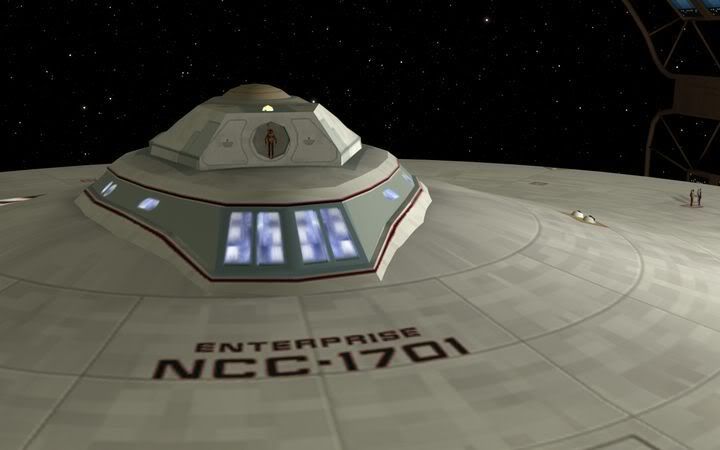





-
PlutonianEmpire

- Posts: 1374
- Joined: 09.09.2004
- Age: 40
- With us: 20 years 2 months
- Location: MinneSNOWta
- Contact:
Re: Post your Celestia pictures!
I love the random combinations I get with the the modified SSC generator, and then manaully typing in the file names for the globular cluster generator textures. 
Like here, a bright, vibrant gas giant, and a dark and mysterious habitable moon.
Like here, a bright, vibrant gas giant, and a dark and mysterious habitable moon.
Terraformed Pluto: Now with New Horizons maps! :D
-
PlutonianEmpire

- Posts: 1374
- Joined: 09.09.2004
- Age: 40
- With us: 20 years 2 months
- Location: MinneSNOWta
- Contact:
- John Van Vliet
- Posts: 2944
- Joined: 28.08.2002
- With us: 22 years 2 months
Re: Post your Celestia pictures!
m.i.c.k.e.y....
now all we need is
now all we need is
-
PlutonianEmpire

- Posts: 1374
- Joined: 09.09.2004
- Age: 40
- With us: 20 years 2 months
- Location: MinneSNOWta
- Contact:
Re: Post your Celestia pictures!
Back to one of my old favorites, Terraformed Pluto. 
Looks just like any other Earthlike world, betraying its tiny radius.
Looks just like any other Earthlike world, betraying its tiny radius.
Terraformed Pluto: Now with New Horizons maps! :D
- t00fri
- Developer
- Posts: 8772
- Joined: 29.03.2002
- Age: 22
- With us: 22 years 7 months
- Location: Hamburg, Germany
Re: Post your Celestia pictures!
Close-up of the very young globular cluster Whiting 1 in Celestia.Sci
This remarkable globular is actually associated with the Sagittarius dwarf spheroidal (Sgr dSph) galaxy. It is very likely that Whiting 1 originated in a dwarf galaxy that has since been disrupted by the Milky Way.
http://dx.doi.org/10.1051/0004-6361:20066825
The rendering uses the same shader stars both for normal stars and for the stars of the globular.
[Click on image by all means!]
Fridger
This remarkable globular is actually associated with the Sagittarius dwarf spheroidal (Sgr dSph) galaxy. It is very likely that Whiting 1 originated in a dwarf galaxy that has since been disrupted by the Milky Way.
http://dx.doi.org/10.1051/0004-6361:20066825
The rendering uses the same shader stars both for normal stars and for the stars of the globular.
[Click on image by all means!]
Fridger

